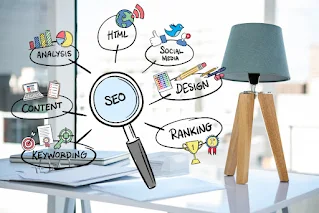Introduction:
Welcome to the Gemini Advertising that describe of On-Page SEO, where small changes can make a big impact on your website's visibility. In this guide, we'll explore the basics of On-Page SEO optimization and how you can improve your website's performance in search engine rankings.
 |
| on-page seo |
1. Understanding On-Page SEO:
On-Page SEO involves optimizing the content and HTML source code of your web pages to make them more search engine-friendly. It's like giving your website a passport to be easily found by search engines.
2. Keywords: The Building Blocks:
Keywords are like the secret codes that help search engines understand what your content is about. Choose relevant keywords and strategically place them in your content, headings, and meta tags.
3. Crafting Compelling Titles:
Your page title is like the headline of a book – it should grab attention. Create titles that are both engaging and include your main keyword. Keep it short and sweet!
4. Meta Descriptions Matter:
Meta descriptions provide a sneak peek into your content. Write a concise and compelling meta description that encourages users to click on your link. Don't forget to include your keyword naturally.
5. User-Friendly URLs:
A URL is the web address of your page. Keep it simple, descriptive, and include your keyword if possible. Avoid using random strings of numbers or symbols – think of it as your website's street address.
6. Headings Hierarchy:
Break your content into sections using headings (H1, H2, H3, etc.). This not only makes your content easier to read but also helps search engines understand the structure and importance of different sections.
7. Quality Content Rules:
Content is king! Provide valuable and relevant information that answers your audience's questions. Google loves quality content, and so do your readers.
8. Optimize Images for Speed:
Large images can slow down your website. Optimize images by compressing them without compromising quality. Use descriptive file names and alt text to tell search engines what your images are about.
9. Internal and External Links:
Connect your content by including internal links to other relevant pages on your site. Additionally, link to reputable external sources when appropriate. This not only adds value but also helps search engines understand your content's context.
10. Mobile Optimization:
More people are using smartphones to browse the internet. Ensure your website is mobile-friendly, as search engines prioritize mobile-responsive sites. This step is crucial for a better user experience and higher search rankings.
Thanks your reading our blog




Great insights!
ReplyDeleteIf anyone is searching for reliable digital marketing services in Mohali
digital marketing services in Mohali, this post is spot on. Professional agencies in Mohali can help boost your online presence and attract the right audience for your business success. Highly recommended!
AARS Exhibit LLC is among the top trade show booth companies in Chicago offering fully customized exhibits. Their designs are eye-catching and functional, helping brands create memorable experiences for visitors.Trade show booth Rental in Chicago
ReplyDelete